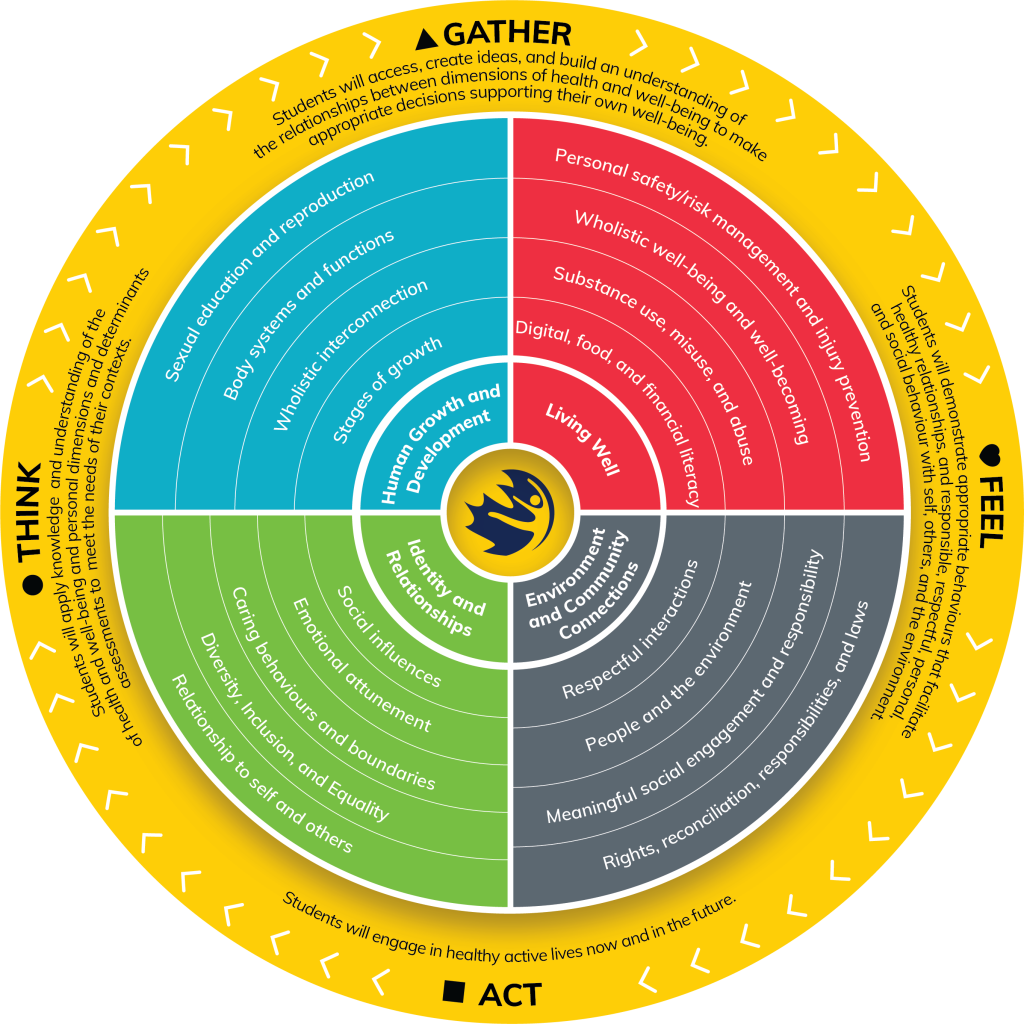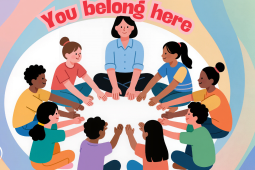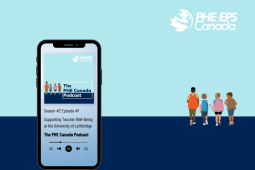Raising the Standard: Why Comprehensive Sexual Health Education Matters in Canada.

What is Comprehensive Sexual Health Education?
Comprehensive sexual health education (CSHE) provides children and youth with the information and skills needed to enhance their sexual health and well-being throughout their lifespan (SIECCAN, 2019). CSHE goes beyond the biological aspects of sexual health (e.g., puberty, preventing sexually transmitted infections [STIs]) and includes the positive aspects of sexuality. For example, CSHE includes concepts related to bodily autonomy, consent, identity development, sexual rights, values and ethics, communication skills, and healthy, respectful relationships.
The Benefits of CSHE: Empowering Youth for a Healthier & Safer Future
There is strong evidence that CSHE can provide children and youth with the information, motivation, and skills to enhance their sexual health and reduce outcomes that can negatively impact their sexual health and well-being (SIECCAN, 2019; 2020; 2023). For instance, CSHE can improve knowledge about sexual and reproductive health, the use of safer sex strategies (e.g., contraception, using barriers), and reduce attitudes that contribute to gender-based violence (e.g., homophobia, gender inequitable attitudes; SIECCAN 2019, 2024).
Children and youth also gain invaluable skills and knowledge from participating in CSHE programs, which are also applicable to broader health literacy. CSHE incorporates media literacy, teaching students to differentiate between misleading or fake health information and, in turn, seek higher-quality, trustworthy sources (Park & Kwon, 2018; Schleicher, 2022). Additionally, CSHE raises awareness of the social, historical, and systemic factors that affect health, equipping students to navigate barriers when accessing services and supports (SIECCAN, 2019).
Collaborative Efforts for Effective CSHE in Schools
CSHE is essential in school settings, and Canadian classrooms have the potential to be accessible and equitable environments for delivering accurate and inclusive CSHE. Ensuring access to CSHE is a shared responsibility that requires the collaboration and support of families, PHE educators, schools, healthcare professionals, and community organizations (SIECCAN, 2019).
In Canada, each province and territory mandates that young people receive some form of sexual health education (SIECCAN, 2019; Vamos et al., 2020). Most importantly, youth themselves have expressed a strong desire to learn about a diverse range of in-depth topics within school-based sexual health education, including sexual pleasure, knowledge of the body, ethics and values related to sexuality, and more (SIECCAN, 2024).
Creating a sense of belonging in the classroom can help students see themselves reflected in the material, leading to a deeper understanding, connection, and application of the content in their lives. In this way, we can contribute to both individual health and well-being and the overall health of the student and school community (Davis et al., 2023).
Guiding Principles: Benchmarks for CSHE in Canada
The Sex Information and Education Council of Canada (SIECCAN) recently published the Benchmarks for Comprehensive Sexual Health Education in Canada. The Benchmarks support PHE educators by providing a consistent, evidence-based tool to assess the extent and effectiveness of sexual health education that meets the needs of youth and positively contributes to their health and well-being.
Informed by research with youth, parents/guardians, and PHE educators across Canada, the Benchmarks use a foundational, building-block approach to address 11 comprehensive sexual health education topic areas:

A foundational building block approach means:
- Content is age and developmentally appropriate.
- Content is reviewed and built upon in subsequent grades.
- Content allows for flexibility to accommodate neurodiverse youth.
- Sexual health topics are introduced as they become relevant to the lives of youth.
Implementing the Benchmarks: A Guide for PHE Educators
The Benchmarks are aligned with the Canadian PHE Competencies Big Ideas and Learning Themes (pg. 28 & 29) for Health and Wellness Education, providing a structured framework for teaching youth about essential topics. For instance, the Benchmarks offer detailed information on:
- Teaching youth about bodies and reproductive health (Human Growth & Development Big Ideas).
- Exploring gender and sexual orientation (Identity and Relationships Big Ideas).
- Identifying characteristics of healthy relationships (Relationships to Self and Others Learning Theme).
- Understanding sexual consent (Caring Behaviours and Boundaries Learning Theme).
- Identifying credible sexual health content (Digital Literacy Learning Theme).
- Understanding the connection between sexual health, mental health, and physical health (Wholistic Interconnection Learning Theme).

By utilizing the Benchmarks in conjunction with the Canadian PHE Competencies’ Health and Wellness Education Competencies Wheel, PHE educators can gain a comprehensive understanding of the detailed content needed for effective CSHE instruction across various ages and grades.
Looking Ahead: A Call to Action for PHE Educators
All children and youth have a fundamental right to information that enables them to protect and enhance their bodily autonomy and sexual health and well-being. In fact, 83% of youth and approximately 76% of parents/guardians believe that access to CSHE in schools is a basic human right for all children and youth (SIECCAN, 2024).
Many observed Sexual Health Week from February 10th to 16th in Canada, but let’s continue to come together and commit to promoting the rights and well-being of youth in Canada. CSHE should not be limited to just one week or reserved for the end of the school year. It is essential that PHE educators and schools prioritize and consistently deliver CHSE throughout the school year (SIECCAN, 2019). Together, we can create a supportive and informed environment that empower youth to make healthy choices now and through their transition into adulthood.
SIECCAN and PHE Canada encourage all PHE educators, administrators, school boards, and other stakeholders to advocate for and implement the Benchmarks and the Canadian PHE Competencies in their classrooms. By actively and intentionally collaborating with students, families, community organizations, and healthcare professionals, you can ensure that every student receives the education they deserve. Let’s commit to making comprehensive sexual health education a priority and work together to promote the rights and well-being of youth in Canada.
For more additional information about the CSHE Benchmarks and other resources, check out the following:
- Benchmarks for Comprehensive Sexual Health Education in Canada
- Sexual Health Education Needs Among Youth (Factsheet)
- Survey Indicates Strong Support for Publicly Funded Sexual and Reproductive Health Services and Sexual Health Education in Schools
- Promising Practices Portal
- Canadian Guidelines for Sexual Health Education in Canada
- Questions & Answers: Sexual Health Education in Schools and Other Settings
To connect with SIECANN online, visit:








